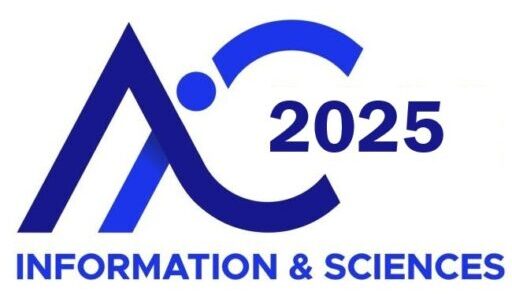Policy and Conditions
The review process is “double blind” – identification of both authors and referees is removed from all documentation. The Conference IPC believes that the review of papers gives conference participants and other readers some confidence in the quality of the papers specified as “refereed” in the proceedings.
As a note to the papers’ authors the following checklist will be used by the reviewers
to evaluate the quality of the papers:
1. * Scope
|
2. * Novelity
|
3. * Significance
|
4. * Well Structure
|
5. * Well Writing
|
6. Notes for Authors Type: Comment |
7. * Decision
|
Publishing Ethics and Editorial Responsibilities
The editors of this conference proceeding are fully committed to upholding the highest ethical standards throughout the publication process. These standards apply to all parties involved—authors, editors, peer reviewers, and the publisher.
Our publishing ethics, both internal and external, align with and adhere to the Committee on Publication Ethics (COPE) Best Practice Guidelines for Peer Review Editors and Code of Conduct for Proceeding Publishers. To ensure the publication of high-quality academic content, the following principles guide the proceeding:
Editorial Responsibilities
Accountability:
Editors are responsible for deciding which submitted articles are suitable for publication, based on their scholarly merit and in alignment with the policies of the editorial board. Decisions must also adhere to applicable legal standards regarding libel, copyright, and plagiarism. Editors may consult with fellow editors or reviewers to inform their decisions.
Fair Evaluation:
Manuscripts shall be assessed solely on their intellectual content, without discrimination based on race, gender, religion, ethnicity, citizenship, or political beliefs of the authors.
Confidentiality:
Editors and editorial staff must maintain strict confidentiality regarding submitted manuscripts. Disclosure is limited to the corresponding author, reviewers, potential reviewers, editorial consultants, and the publisher, as necessary.
Disclosure and Conflicts of Interest:
Confidential information or insights obtained during the review process must not be used for personal gain. Editors and reviewers must recuse themselves from handling manuscripts in which they have any conflict of interest arising from competitive, collaborative, or other relationships with the authors, institutions, or companies involved.
Author Responsibilities
Reporting Standards:
Authors must present their research accurately, clearly, and honestly, avoiding fabrication, falsification, or manipulation of data. Methodologies should be described in sufficient detail to allow replication.
Originality and Plagiarism:
Submitted work must be original and must not have been published elsewhere. Plagiarism in any form is unacceptable. Authors must properly cite and reference the work and words of others.
Data Access and Retention:
Authors may be required to provide raw data for editorial review and should retain such data for a reasonable period post-publication.
Ethical Compliance:
Research submitted for publication must comply with relevant ethical standards and legislation. Authors must ensure that their work was conducted responsibly and ethically.
Disclosure of Conflicts of Interest:
Authors must disclose any financial or personal relationships that could influence the results or interpretation of their manuscript. All sources of funding must also be acknowledged.
Authorship and Contributions:
Authorship should reflect individuals who have made significant contributions to the study’s conception, design, execution, or interpretation. All contributors who meet these criteria must be listed as co-authors, and those who provided support should be appropriately acknowledged. The corresponding author is responsible for ensuring that all listed authors approve the final manuscript and agree to its submission.
Multiple or Redundant Submissions:
Authors should not submit the same manuscript to more than one proceeding or primary publication simultaneously. Submitting identical or substantially similar work to multiple outlets is unethical and will not be accepted.
Correction of Errors:
If an author discovers a significant error or inaccuracy in their published work, they are obligated to promptly inform the editor or publisher and cooperate in issuing a correction or retraction.
